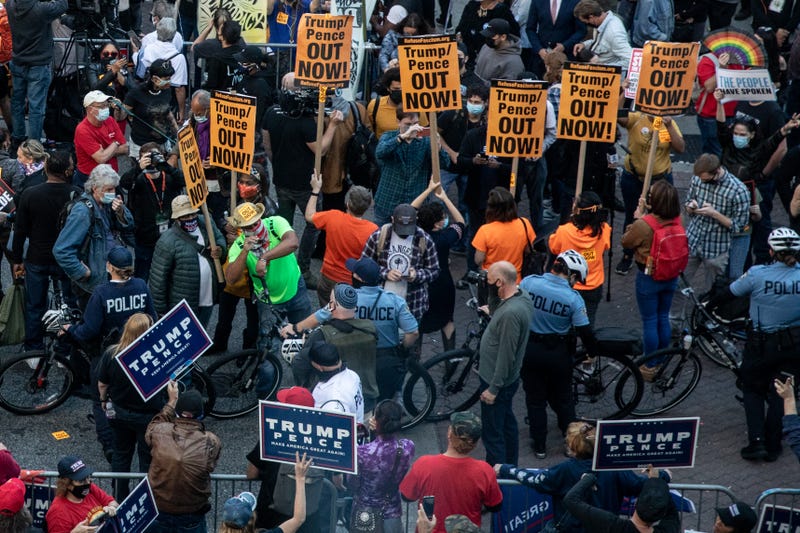
PHILADELPHIA (KYW Newsradio) — We hear it all the time: “Our nation has never been so divided.”
But historically, we have been deeply split before — and the nation has survived.
The day after the still-contentious presidential race, Villanova law professor Catherine Lanctot made a virtual visit to students at Philadelphia’s Moore College of Art & Design to explain that the nation has seen tight elections before.
“We have vote margins right now that are razor thin,” she said. “It's not uncommon for that to have happened historically, and that it’s not uncommon for historians to spend decades discussing about why did that happen.”
Lanctot — who incidentally was a five-time “Jeopardy!” champion in 2007 — pointed to three examples. First, the presidential election of 1800, when there were 35 tie votes in the House of Representatives before a president was chosen.
Then, the 1976 Carter-Ford contest had a tip of 15,000 votes that would have resulted in an Electoral College tie. And in 2000, when the U.S. Supreme Court stepped in to stop Florida’s “hanging chad” recount.
Lanctot emphasized to the Moore students that the future is in their hands. Moore senior Kendyl Boyd said she believes the country will come together again.
“I came away with a sense that this also is a part of our history,” she said after Lanctot’s lecture. “We can learn from it and we can progress from this.
“(Lanctot) really gave us a great quote: ‘We study history because it gives us hope.’ And this idea that we’ve been through it before, in different circumstances and different times. We live in America and it’s supposed to be one of the greatest countries. And I do believe and want to believe that beyond voting, we all can take a part in making progress to unify us.”
Boyd also said social media will play a role.
“I believe that will be one of the tools that will allow us to become more unified,” she added.
Throughout history, Lanctot noted, people have fought to maintain our country’s ideals. And that, she said, gives her hope.
